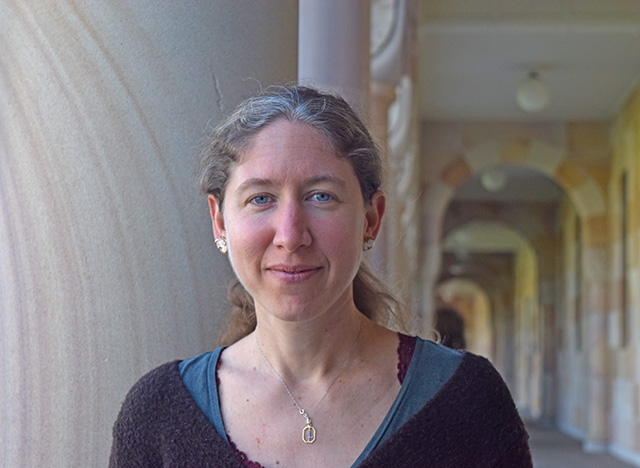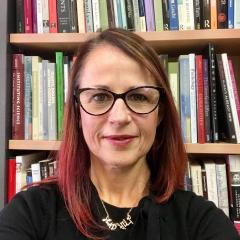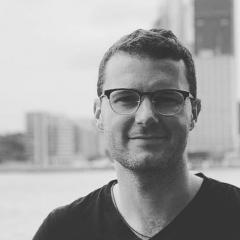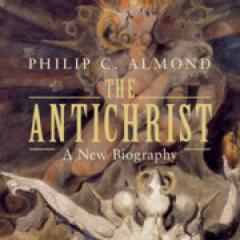 Dr Lucia Pozzi joined IASH in July 2017 as a Postdoctoral Research Fellow. She was awarded her PhD from the University of Bologna in 2012, and continued there as a Research Associate before taking up the Postdoctoral Fellowship in IASH.
Dr Lucia Pozzi joined IASH in July 2017 as a Postdoctoral Research Fellow. She was awarded her PhD from the University of Bologna in 2012, and continued there as a Research Associate before taking up the Postdoctoral Fellowship in IASH.
What are you working on at the moment?
At the moment I have various projects ongoing. The most important of them certainly is the manuscript of my book Catholicism and Sexual Knowledge between the 19th and 20th Centuries, which I am about to submit to Palgrave Macmillan. It is a study that heavily relies on new archival sources. One of my aims is to show how the dialogue between science and religion was nuanced. For instance, religious discourse borrowed scientific normative views on solitary sex and vice versa. Another significant work in progress is my contribution to the Cambridge History of the Papacy. I have been asked to write about popes, contraception and abortion. The themes I have been working on in the last ten years have all to do with the history of Catholic receptions of medical knowledge, which is a specific variant of IASH inquiries into secularisation. This is why my new project focusses on the history of Catholic physicians. In particular, I am interested in the construction of modern Catholic discourses on gender and sexuality. My research has also intersected with the history of eugenics and the history of Italian fascism.
How did you get interested in these topics?
I have a number of research interests and if I wanted to follow all of them, I guess one life could not be enough. My interest in the history of secularisation came from my study of Max Weber, when I was undergraduate. But, my interest in the history of religion and sexuality was born in the context of the Foundation for Religious Studies in Bologna, where I did my PhD. Then, working in Vatican archives enhanced my curiosity to the point that now I have a passion for historical research. This is probably why I still take my chances with a precarious professional pathway.
What social benefit do you see in this research?
My research sheds light on a set of themes relevant to our society. I offer insights into the historical roots of our conceptions of gender and sexuality. A historical awareness of these themes is pivotal to tackle gender discrimination and even sexual abuses. In fact, I recently submitted a grant application on the history of the concept of sexual abuse.
Who/what have been the greatest influences on your own work?
I have a number of people who have made possible my work until now. Most recently, Peter Cryle and Peter Harrison not only have strongly influenced my work but they have also taught me what is constructive and generous mentoring. The work of my friend and colleague Fernanda Alfieri, who was visiting scholar in CHED, has a great influence on my research. But I owe so much to great Italian scholars such as Adriano Prosperi and Paolo Prodi, and especially to Pier Cesare Bori, who years ago introduced me to a multi-disciplinary (and open-minded!) scholarly approach to religion. I should probably mention the influence that my uncle had on me when I got intrigued by Michel Foucault. I was 15. Unfortunately, some of these persons are no longer with us.
How do you like to unwind when you’re not working?
I have two children. They are the biggest research project of my life. This means that when I am not working on my book, I am still working on something else. But I love to unwind on the beach. Stradbroke Island is one of the places most beautiful I have ever seen (and there are quite a few in Italy).



